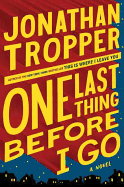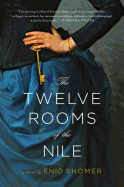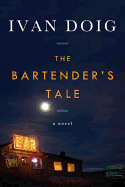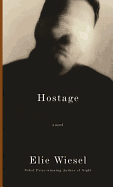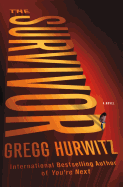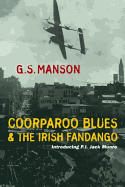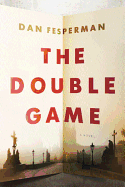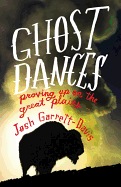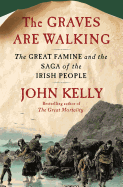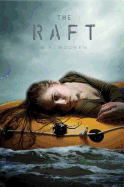Tuesday, August 28, 2012
You can feel it approaching like a late August thunderstorm, hear it in the voices of friends who teach and read it in their Facebook posts. Fall Term dread is palpable, even among great teachers who love their jobs. Yet it's also a circle of hell that has spawned some fine writing.
I love those moments when an instructor's internal thought process engages in a futile battle of wits with the students' blatantly external thought processes. Who am I talking about? People like Grady Tripp in Michael Chabon's Wonder Boys; William Henry Devereaux, Jr. in Richard Russo's Straight Man; Vladimir Nabokov's Timofey Pnin; the narrator of "Introduction to Poetry" by Billy Collins. Their patron saint is probably Simon Gray's Ben Butley.
In the spirit of the season, I offer two soon-to-be-published titles that are not really academic novels, yet feature epic classroom scenes: In May We Be Forgiven by A.M. Homes (Viking, Sept. 27), the life and extraordinary times of Richard Nixon scholar Harry Silver are deftly chronicled, including a Sisyphean quest--perhaps the least of his challenges in the story--that puts him in the discomforting, if entertaining, position of teaching Nixon to undergrads who "sit unblinking in a stupor."
In May We Be Forgiven by A.M. Homes (Viking, Sept. 27), the life and extraordinary times of Richard Nixon scholar Harry Silver are deftly chronicled, including a Sisyphean quest--perhaps the least of his challenges in the story--that puts him in the discomforting, if entertaining, position of teaching Nixon to undergrads who "sit unblinking in a stupor."  Eduardo Halfon's brilliant novel The Polish Boxer (Bellevue Literary Press, Oct. 2) opens with one of the best classroom scenes I've ever read. The professor, a Guatemalan writer and literature instructor, stands helplessly before row upon row of students looking "like lost sheep, yet smugly convinced that they weren't."
Eduardo Halfon's brilliant novel The Polish Boxer (Bellevue Literary Press, Oct. 2) opens with one of the best classroom scenes I've ever read. The professor, a Guatemalan writer and literature instructor, stands helplessly before row upon row of students looking "like lost sheep, yet smugly convinced that they weren't."
You have your assignment. Will these books be on the final exam, you ask? Yes, they will. --Robert Gray, contributing editor, Shelf Awareness
One Last Thing Before I Go
by Jonathan Tropper
Jonathan Tropper scores again with One Last Thing Before I Go, a sharp and funny study in dysfunctionality and middle-age crisis. The protagonist is Silver, an unhappily divorced man in his 40s with a Princeton-bound daughter who resents him. He readily admits that he's been a lousy husband and father, and feels he's gotten what he deserves--days of hanging by the pool of a rundown efficiency with his equally loser buddies. He can't even bring himself to dislike his ex-wife's fiancé, Rich, a relentlessly decent surgeon.
Then his daughter shows up and drops a bombshell: she's pregnant and wants Silver to make a decision for her. At one point in their ongoing back-and-forth, Silver blacks out, waking in a hospital with Rich standing over him telling him that he will die if he doesn't have an operation immediately to repair an aortic tear. Silver refuses the surgery and leaves the hospital, his reason unclear, but it's all of a piece with his general inability to commit to anything.
As the novel careens to its satisfying and not entirely expected ending, Tropper leavens the humor with many tender moments, but never manipulates our emotions. Both the laughs and the tears in this sweet and clever novel are genuine and well-earned. And while there are many scenes so well-constructed they could be stories on their own, and several quietly brilliant character studies, One Last Thing Before I Go is ultimately, happily, a great deal more than the sum of its parts. --Debra Ginsberg, author
Discover: A sharp, funny novel of family relationships in extremis, by a master at illuminating the pathos and comedy of modern life.
The Twelve Rooms of the Nile
by Enid Shomer
Enid Shomer has written four books of poetry and two short story collections (including Tourist Season). Now, in her early 60s, she's published her first novel, The Twelve Rooms of the Nile, an entrancing story about a meeting between two famous people before they were famous (and who never actually met).
Egypt, 1849: The frustrated, cynical Gustave Flaubert is on a Nile cruise; so is an idealistic woman afflicted with desespoir named Florence Nightingale. Accompanying Flaubert is his good friend Maxime De Camp, excitedly photographing artifacts while Flaubert collects rubbings for him. With Flo is Trout, her maid, who carries around her waist a large key, a reminder of her lover in England.
There's no mystery to solve here or disaster for Flaubert and Nightingale to overcome together, just a delicate and slow unwinding of their powerful, complex personalities as they discuss their hopes with each other while climbing pyramids, crossing the Sahara and visiting the Red Sea. In some ways, The Twelve Rooms of the Nile is an epistolary novel, so important are the personal and reflective letters the two send each other by courier. Flaubert is at first "your humble servant" then "your friend" and she his Rossignal, then "my dear songbird."
Shomer conducted prodigious amounts of research to re-create this Victorian world and provide authentic portraits of Flaubert and Nightingale. But she wears that research lightly, as Shomer the poet provides us with lush prose and a subtle, palpable depiction of the internal torments suffered by two geniuses. --Tom Lavoie, former publisher
Discover: A luscious historical novel that creates a fascinating literary voyage into the minds of two great figures of the Victorian era.
The Bartender's Tale
by Ivan Doig
Consummate storyteller Ivan Doig has previously written about Two Medicine County in northern Montana in Work Song and The Whistling Season. It's a place where characters abound and where the ordinary can become extraordinary in an instant because of hostile weather, natural disaster or the sheer orneriness of its denizens--all of which factor in the evocative The Bartender's Tale.
Rusty, the result of "an accident between the sheets," has spent his first six years with an aunt, uncle and hateful cousins in Phoenix after his mother walks out on her four-month-old infant. Then Tom, Rusty's father, fetches him home to Gros Ventre and the Medicine Lodge, its finest bar. In 1960, when Rusty turns 12, Proxy, a former taxi dancer well known to Tom, and her 21-year-old daughter, Francine, appear. Proxy needs a favor: she wants Tom to teach her how to be a bartender.
Rusty and his friend, Zoe, whose parents run the local cafe, respond to this new development as they do everything else in Gros Ventre: by acting out theatrical bits gleaned from the movies--she is Muscles, he is Ace--in vintage Doig patter. Their lives during this magical summer revolve around an area in the bar where they can hear everything but cannot be seen.
A wild card appears in the person of Delano Robertson, who arrives with a grant from the Library of Congress to record the "MissingVoices" of America for posterity. How this all plays out is replete with twists and turns aplenty. --Valerie Ryan, Cannon Beach Book Company, Ore.
Discover: Ivan Doig returns to familiar territory with a new story about a boy, his father, a bar and a soon-to-be-lost way of life.
Hostage
by Elie Wiesel, transl. by Catherine Temerson
Set in mid-1970s New York, Elie Wiesel's Hostage recounts the nightmare experience of Shaltiel Feigenberg, who is seized by two terrorists--one Arab, the other Italian. The young writer's claim to celebrity is modest, and there's no obvious reason he's been singled out. But his ordeal becomes more compelling when we learn he survived the Holocaust as a child in Galicia, hidden by a German count while his father was deported to Auschwitz and his mother died from an untreated medical condition.
Over several days, Feigenberg is beaten and confronted repeatedly by his kidnappers. Ahmed is an abusive, fiery revolutionary, while Luigi, though equally fervent in his radical beliefs, prefers to engage in civilized conversation with his prisoner.
Unsurprisingly, Wiesel's novel overflows with stories, the chief vehicle Feigenberg relies upon to maintain his sanity. Whether it's the parables of some of the Hasidic masters whose work Wiesel has helped popularize or his protagonist's accounts of the chess matches he played against the German count as a terrified boy, these tales prove, as the mystic One-Eyed Paritus, a recurring character in Wiesel's novels, puts it, "God created man and gave the storytellers the task of saying why." Eventually, it becomes clear the writer is being used as a bargaining chip to secure the release of three Palestinian prisoners.
Hostage sums up many of the themes Wiesel has pondered in a long and distinguished literary career. "In the face of memory," Feigenberg observes, "joys and sorrows merge." That statement could serve as a fitting epigraph for this spare, provocative work. --Harvey Freedenberg, attorney and freelance reviewer
Discover: Elie Wiesel uses a political kidnapping to explore the themes of memory and the political fanaticism that inspires terrorism.
Mystery & Thriller
The Survivor
by Gregg Hurwitz
Gregg Hurwitz (You're Next) consistently creates explosive openings to his thrillers, and The Survivor delivers his most forceful yet. Nate Overbay is a professional crisis responder with the Los Angeles Police Department, but his job is no help when he's the one in crisis. His wife and daughter have left, he's tested positive for Lou Gehrig's disease--Nate feels he has nothing left. So he's decided to commit suicide. Then, just as he's about to take a nose-dive off a building, a gang of gunmen burst into a bank. Deciding he's going to die one way or the other, Nate charges in after the gunmen, taking them by surprise. But becoming the hero just put Nate's family in grave danger--the suicide will have to wait.
Despite the extraordinary circumstances, Nate is a character with whom readers will easily relate, empathizing with the daily struggles of his job, paying the bills, coping with divorce and a strained relationship with his teenage daughter. And his painfully realistic relationships with other characters keep the momentum of the book in overdrive.
The Survivor offers more than a tightly woven, fast-moving plot. Hurwitz examines tough interpersonal issues as well as current social issues, like soldiers coping with Post Traumatic Stress Disorder--and, in the midst of such serious subject matter, still comes up with sharp, witty dialogue. Using a combination of fast-action sequences and passionately charged circumstances, Hurwitz will ignite readers' heart rates with an extra jolt of adrenaline. --Jen Forbus of Jen's Book Thoughts
Discover: A heart-pounding thriller that will remind readers what true heroism is.
Coorparoo Blues & The Irish Fandango
by G.S. Manson
It's tough being a private dick Down Under, and Jack Munro, a veteran of the Great War and an ex-copper, has spent most of his professional life on backyard lawns in pursuit of philandering spouses. Now, in the midst of the Second World War, he catches a case of the "Coorparoo Blues" when a missing husband lands him in a world of trouble involving local lowlifes and some very questionable seppoes (the Aussie slur for Americans). Then, in "The Irish Fandango," an investigation into the apparent suicide of a communist organizer sucks Munro into a vortex of secrets reaching back to the Spanish Civil War, revealing crimes against god and humanity.
Whimsical in a delightfully vulgar way, G.S. Manson's pair of novellas are a guileless homage to classic noir works by authors from James M. Cain and Raymond Chandler to contemporaries like Elmore Leonard. A protagonist with great appeal, Munro might wish he were Sam Spade, but that rough exterior belies a sucker of Marlowesque proportions with a soft spot for the sheilas and an affinity for the underdog. Steeped in digga slang, the hardboiled capers offer a rare glimpse of wartime Australia. (Luckily, there's a glossary included for non-Australian readers.) Perfectly poised between kitsch and serious period piece, Manson gives readers just the right amount of facts and fun for the ideal beach book. --Tom Lavoie, former publisher
Discover: How to lie doggo and knock back some neck-oil when the spivs arc up, as a detective Down Under works two cases.
The Double Game
by Dan Fesperman
The Double Game, Dan Fesperman's eighth novel, pays homage to the greats of the spy genre. It begins near the end of the Cold War, as journalist Bill Cage interviews CIA agent turned spy novelist Edwin Lemaster. During their conversation, Lemaster admits he'd once thought about spying for the enemy, a scoop Cage intends to keep to himself, but ultimately can't resist including in his article. Lemaster's admission makes a minor sensation, but Cage eventually abandons both his love for spy fiction and his writing career, working in public relations to pay the bills.
Then a series of mysterious notes appear at Cage's Georgetown home, pulling him into a maze of intrigue involving not only Lemaster's past, but Cage's childhood in Eastern Europe and his father's diplomatic career. The messages, replete with cryptic references to spy novels, draw Cage back to former haunts in Vienna, Prague and Budapest. Accompanied by an old girlfriend who has suddenly (coincidentally?) resurfaced, Cage searches for answers--and for the identity of his anonymous interlocutor.
Longtime lovers of the spy genre will appreciate all the references to its plots and heroes--including John le Carré, Graham Greene and Ian Fleming--but Fesperman provides enough context so new readers won't get thrown by the in-jokes. With a tightly spiraling plot and a cast of deftly sketched (if appropriately shadowy) characters, The Double Game will keep readers turning the pages as they join Cage's search for clues. --Katie Noah Gibson, blogger at Cakes, Tea and Dreams
Discover: A tightly plotted spy novel that harkens back to the Cold War while paying homage to the genre's literary giants.
Biography & Memoir
Ghost Dances
by Josh Garrett-Davis
Josh Garrett-Davis carries a lot of baggage in Ghost Dances, not the least of which is the hyphenated name he retook after years of emotional struggle with his parents' divorce and subsequent upbringing by his lesbian mother and her partner. Fortunately, he maintains a healthy sense of humor in his meditative memoir of "proving up on the Great Plains." His free-spirited and socially conscious parents abandoned their liberal establishment upbringings in the 1970s and took off for South Dakota, where they eventually married. Their wedding reception says much about the origins of Garrett-Davis's difficultly finding a comfortable place in the world: "With their spliff and a six-pack, they celebrated with their two witnesses in the city park," he writes, "and hung off the back of the same bronze Dodge that, years after the whole thing fell apart, would overheat in Quinn outside the Two Bit Saloon."
Ghost Dances riffs on many facets of the land of "amber waves of grain" from the apocalyptic American Indian ceremony of the title to the extinction of the bison and the long history of transient inhabitants of a "monotonous landscape" where a "latent fury" is constantly "ready to unleash a tornado or a shrill blizzard or a boiling, sulfury geyser if punctured." A lifelong fan of punk rock, Garrett-Davis enriches his memoir with a kind of mixtape of the times; even his schoolboy friends are differentiated by their music tastes--a Geto Boys lover here, a Danzig fan there, an older brother into Depeche Mode and a whole prairie of Christian "death metal" followers. --Bruce Jacobs
Discover: A very personal, eclectic and funny re-evaluation of the history and abiding attraction of the Great Plains.
History
The Graves Are Walking: The Great Famine and the Saga of the Irish People
by John Kelly
The potato blight that struck Europe in the 1840s left hunger and devastation in its wake across the continent, but Ireland was hit the hardest--losing over a third of its population to starvation and emigration. Historians and politicians have spent decades attempting to explain why the blight was so much worse in Ireland than in other countries. In The Graves Are Walking, John Kelly chalks it up to one small part bad luck and one large part British policymakers.
It is commonly held that the British government was at fault during the Famine years for exporting more food from Ireland than it imported. Kelly, however, maintains that the opposite was true overall--yet in doing so, he does not lift the blame from British shoulders. Instead, through careful research and a detailed recounting, he argues that Britain's continued attempts to use the famine to shape policy were at fault for the mass death and emigration. Attempts to maintain a free market devolved into famine pricing, for example, while inefficient public works programs did not pay workers enough to alleviate their hunger and left unfinished roads.
From the first touches of the potato blight in Europe to the emigration of Irish peasants to the United States, Canada and England, The Graves Are Walking provides an incredibly well-researched history of the Great Famine. The narrative structure of the book reads like a novel, making the reality of this particular bit of history all the more haunting. --Kerry McHugh, blogger at Entomology of a Bookworm
Discover: A well-researched analysis of the Great Famine in Ireland--and its far-reaching consequences.
Audio
Memoirs of an Imaginary Friend
by Matthew Dicks; narrated by Matthew Brown
Kids say the darnedest things, and so do their imaginary friends. Matthew Brown voices those darnedest things in the audio version of Matthew Dicks's Memoirs of an Imaginary Friend.
Budo, the novel's narrator, declares that imaginary friends are real; they're just a different kind of real. Budo is imagined by Max, an autistic child who, Budo explains, "lives mostly on the inside." Budo understands Max's special needs and he doesn't try to change Max; instead, he helps his human friend cope with the challenges of his life, including being kidnapped by a trusted adult.
Budo points out that each imaginary friend is different. They appear as their human friends imagine them. Brown doesn't merely give voice to these friends, who include a flat outline drawing, a puppy, a fairy, even a giant; he gives them whole personalities, making the listening experience expand beyond audio into other senses.
In Memoirs of an Imaginary Friend, Dicks creates an entire new dimension co-existing with the human world; Brown steps into that dimension and melds the two worlds seamlessly together. While the rules of Dicks's imaginary microcosm aren't always consistent--after all, it is imaginary--Brown treats the imaginary sphere as though it is as normal as... well, reality.
Readers may find themselves on an emotional roller-coaster as Brown puts not only sound but also soul into the humor, the frustrations, the fears and the realizations of these unusual characters. Dicks has written a heartwarming tale; Brown ratchets up the warmth with his endearing narration. --Jen Forbus of Jen's Book Thoughts
Discover: The story of an imaginary hero who touches reality through "the bravest boy in the world."
Children's & Young Adult
Olivia and the Fairy Princesses
by Ian Falconer
Olivia is having an identity crisis. She's always seemed so confident, but she does not know what she should be. "You'll always be my little princess!" her father says. But that's precisely the problem. All the girls want to be princesses. Olivia's quest to figure out her calling makes great entertainment for the whole family.
With his trademark humor, Ian Falconer depicts 17 dancing princesses with star-shaped wands, tiaras and pink tutus dancing. In the center of them stands Olivia, dressed in a blue-striped sailor top, straw hat, shades and pearls, carrying a red purse. "Why is it always a pink princess?" she asks. In answer, Falconer showcases Olivia modeling the attire of princesses from India, Thailand, Africa and China. She points out that everyone auditions for the part of the fairy princess ballerina at school. Olivia, on the other hand, is developing "a more stark, modern style." In a series of images that resemble sepia-toned photographs, Olivia strikes Martha Graham-style poses (later, a photo of the innovative dancer-choreographer appears over Olivia's bed).
Poor Olivia can't even ditch the princesses when it comes to her bedtime story. She keeps herself awake imagining the possibilities for her future. Her fans will be delighted when she arrives at the perfect solution. Olivia once again eschews the status quo for individuality and a grand sense of style. She's a model of confidence, intelligence and being true to who she is. --Jennifer M. Brown, children's editor, Shelf Awareness
Discover: The porcine heroine, tired of her peers' preoccupation with pink princesses, searches for a calling she can fully embrace.
The Raft
by S.A. Bodeen
S.A. Bodeen (The Compound) returns with an edgy book that tests her characters' ability to survive in a desperate situation. In The Raft, she combines the physical danger of being lost at sea with the psychological perils of being terrified and convinced of impending death.
At 15, Robie is already an experienced traveler. Her parents work on the Pacific Island of Midway, and she often visits her aunt Jillian in Hawaii. After a stressful visit with her aunt, she boards the cargo plane in Honolulu that delivers goods to Midway. A powerful storm hits midflight. The copilot, Max, tells Robie to put on her life jacket while he inflates a raft, and the plane goes down.
Robie surfaces alone in the middle of the sea. A flare explodes, and she finds Max and the raft. It's dark, there are sharks and the raft has a leak. There's also no drinking water and no food except for a bag of Skittles, and the pair don't know in which direction to head. Robie's only survival tips come from what she's learned from living on Midway, watching reality shows and a small booklet tucked into a waterproof pouch labeled "Coastal Commander."
There are few survival books with girls as main characters, and The Raft will appeal to both boys and girls. Quick pacing, short sentences that convey urgency, and the author's ability to show Robie's sense of isolation and terror will keep readers glued to the pages until the finish. --René Kirkpatrick, blogger and bookseller at Mockingbird Books
Discover: A teenage girl lost at sea, who relies on her inner strength and resourcefulness to survive.


